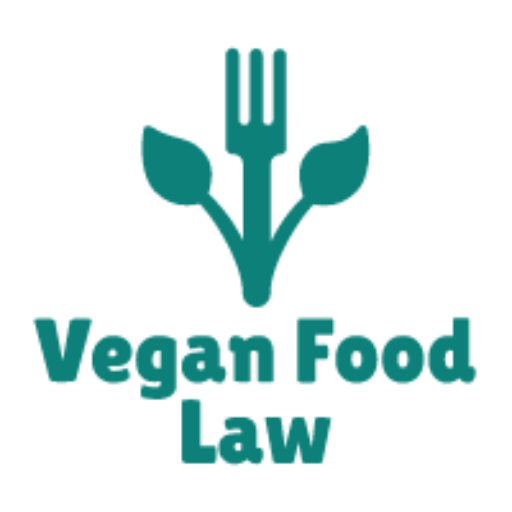Vegan and plant-based food labelling

Nowadays when you wander around supermarket aisles, you see an endless number of animal-free versions of basically any of your favourite foods: from soy-based burgers that “bleed” to a 3D-printed salmon made from pea protein or even an oat drink blend that tastes like cow’s milk. You probably think about how you would have never seen most of these products, especially in such impressive variety, just a decade ago.
According to a report from Grand View Research, Inc., the global market of vegan and plant-based food is predicted to reach $37.45 billion by 2030 with Europe ranking amongst the biggest consumer bases.
However, disruptive by nature such foods, in particular those mimicking products of animal origin, may not necessarily fit into a long-established legal food system, like Europe, therefore challenging companies to probably label them.
What are vegan and plant-based alternatives?
Often used interchangeably, the terms vegan and plant-based differ from one another. Plant-based only refers to a diet where foods coming from the Kingdom Animalia are excluded and replaced by those coming from the Kingdoms Plantea, Fungi, Eubacteria, Protista, and Archaebacteria.

Figure 1. Domain and kingdoms. By Biology Meg.
Vegan foods on the other hand are part of a broader spectrum and include elements beyond eating patters. Coined by the Vegan Society of the United Kingdom in 1949, veganism refers to a “philosophy of life which seeks to exclude – as far as is possible – all forms of exploitation of, cruelty to, animals for food, clothing or any other purpose”. It also promotes the development and use of animal-free alternatives in all industries making direct or indirect use of animals. With regard to eating, vegans do not eat foods derived wholly or partly from animals like eggs or honey.
For instance, mycelium-based bacon and an algae-based drink resembling cow’s milk are classified as such animal-free products.
However, unlike animal products, these products are not legally and are thus not entitled to enjoy prerogatives given to products of animal origin as demonstrated in the 2017 landmark case law Tofutown regarding vegan alternatives to milk products. According to common logic and quotidian vocabulary, an alternative to butter should be allowed to make use of the term providing it gives sufficient informaiton to consumers as for its genuine nature by adding a clarifying term like tofu. The Court of Justice of the European Union (CJEU) disagreed with this reasoning and reiterated that only products complying with the prerequisites listed in the CMO regulation could bear animal-based terms which is not the case for tofu butter.
The European rationale widely differs from decisions rendered in North America, notably Miyoko’s and Rawesome which did authorize the use of milk-related terms for vegan foodstuffs under certain conditions.
Regulatory framework
When it comes to naming and advertising vegan and plant-based alternatives, food business operators (FBOs) are responsible for correctly implementing the applicable legal provisions while making sure their marketing strategy is not perceived as misleading by consumers. FBOs benefit from little support from authorities which not only do not provide guidelines to help navigate the regulatory framework but also solely intervene ex-ante upon competitors’ and consumer protection associations’ complaints.
Let alone at the European Union’s (EU) level, FBOs must juggle a dozen regulations scattered around several fields of law such as food labelling, unfair competition practices and consumer protection. Nevertheless, miscellaneous matters remain unaddressed which gives an open door to EU member states to enact further restrictions.
Isn't the European market supposed to be harmonised?
Supposedly, according to the free movement of goods and the mutual recognition principles, goods legally manufactured in an EU member state should be sold without any issue in another state. However, the naming and advertising of alternatives must be adapted depending on the official language of the country in question. FBOs must deal with 24 official languages compelling them to readapt their marketing strategy every time they sell to a new market. Moreover, discrepancies across food categories do exist which in turn jeopardizes a potential level playing field between companies.
Additionally, the cultural aspect of food may be put forward by countries to implement restrictive measures against alternatives to allegedly protect their gastronomic heritage. France is a prime example of this situation considering it has already attempted three times to restrict the use of meaty terms whose latest endeavour is currently on hold due to its questionable legality.
On the other hand, some countries having strong economic ties with the EU try to maintain a similar regulatory framework. As European Free Trade Association (EFTA) members, Switzerland and Liechtenstein have comparable rules in place, while the United Kingdom still applies EU rules that it has transposed into national legislation before Brexit.
Is there any way to navigate the market with ease?
Yes, provided you are willing to dedicate a significant amount of time to figure out by yourself all the applicable legal provisions and address any potential regulatory of your chosen market.
Otherwise, you can save yourself time and effort by checking out my guidebook “Naming and advertising vegan and plant-based alternatives to products of animal origin in the European Union, United Kingdom, Switzerland and Liechtenstein” which I have specifically written to empower companies to navigate the space on their own. You may find more information on this page.
About the author
Mathilde Do Chi is a food law consultant specializing in global alternative protein regulations. She has been the Vice President of Regulatory Affairs of the Vegan World Alliance and the Vegan Society of Canada since 2020 and has previously worked for ADM, one of the leading multinationals in the plant-based protein space. Passionate about animal-free food, she has acquired unmatched expertise in vegan and plant-based food regulations.
